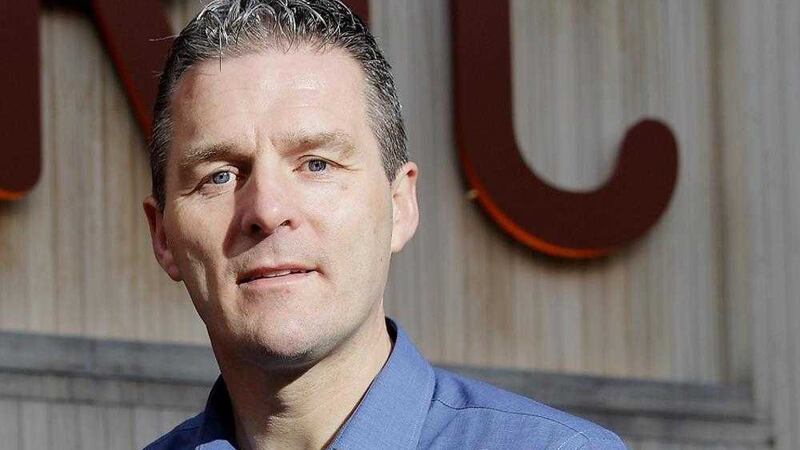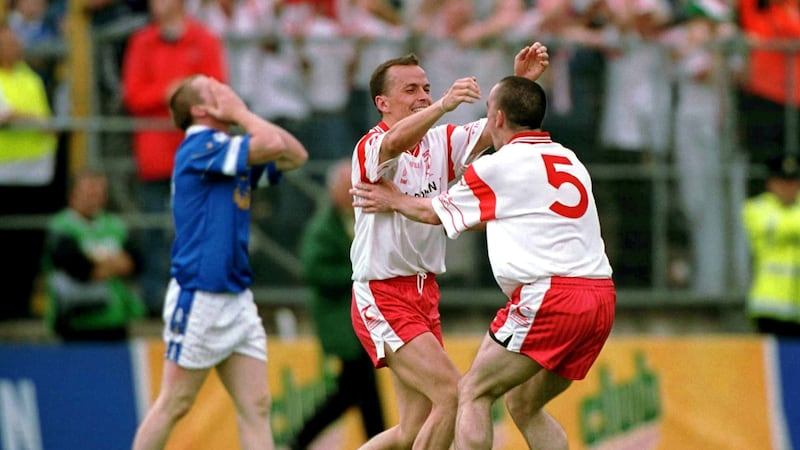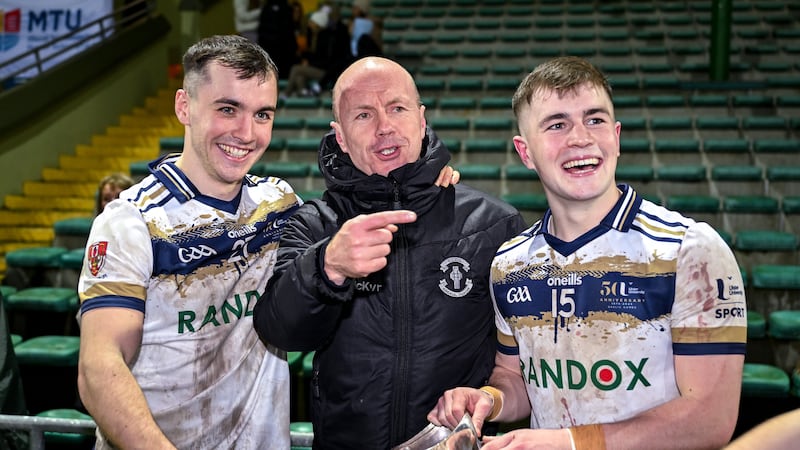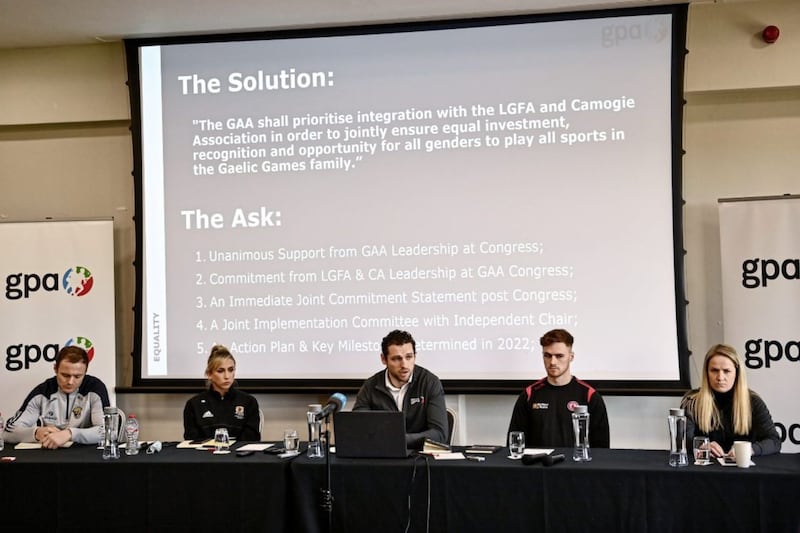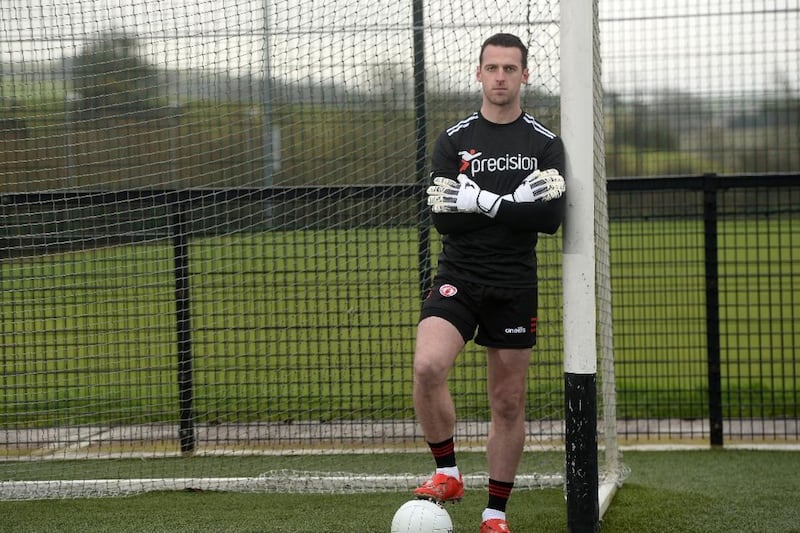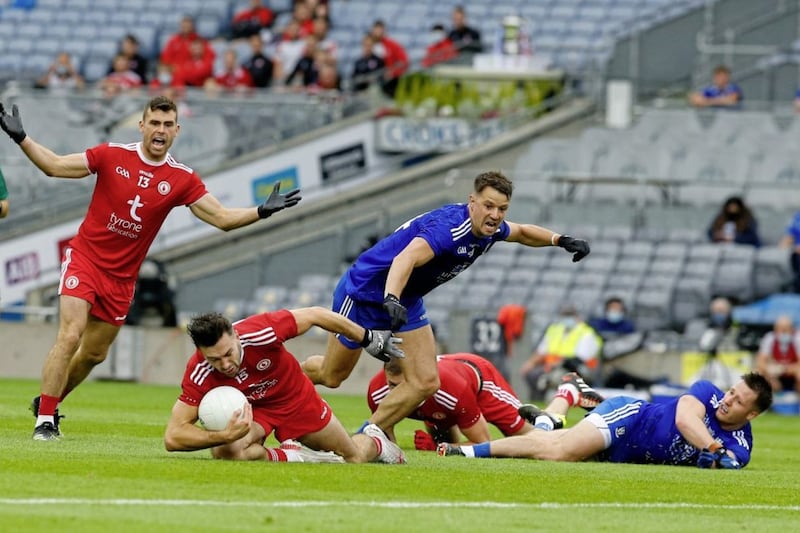CURTAILING the number of hand-passes and allowing players to ‘tap and go’ after frees may be next on the agenda for playing rules changes after the introduction of the mark.
Jarlath Burns, chairman of the GAA’s Standing Committee on Playing Rules, also argued that managerial opposition to the new mark rule was of little concern to him, saying: “Whenever we come to Congress, this is our moment. We are the legislators. It is up to us to produce an attractive game. It is up to managers then during the summer to interpret that game and win using it.”
Whether or not the mark comes in for this summer’s Championship remains to be seen, with Central Council due to make that decision at their mid-March meeting, but Burns insisted he would like to see it implemented as soon as possible: “They can put that off if they want – but I’d want to see it immediately.”
The former Armagh football captain admitted he had been planning to withdraw the motion and then trial the mark, but took a leap of faith and caught the big prize:
“I’m very pleased, it’s something I’ve been very passionate about. At the Congress in Down [in 2010] I asked to get standing orders suspended because I felt we had rushed through that.
“So to come back and have it passed, by a slim majority [68 per cent in favour], is great. My plan this week was to speak very passionately about it, withdraw it and say we were going to trial it – but from talking to people during the week we got the impression it might just get through.
“It’s a very proud moment, but it’s not about me and it’s not even about the players, it’s about the skill and it’s about preserving that skill – we can’t sleepwalk into the death of that very important skill.”
The Silverbridge clubman argued that the mark would not slow down play, saying: “It has been trialled in the Leinster minor league. What they have found is that when players generally catch the ball that they are playing on and I think that’s what will happen. It will hardly even be noticed in the game in a few years because people will just say when he catches the ball ‘Stand back and allow him to play on’.”
Burns also suggested managers will have to adapt their tactics now: “Really, what this is going to do is make coaches think again about taking the short kick-out, which has risen out of control in the last number of years.
“They will have to think now, ‘Well, we’ve a choice now to work on from the full-back line and all that that entails, or we can kick the ball out to midfield to our big catching midfielder and he gets a little bit of a leg-up and gets a free play.’ As a result of that the high catch will be preserved. We are down to six a game at the last count.”
As for limiting hand-passes, Burns urged some caution: “We have to be very careful in making the referee count any more than he has to count. Already he has to count seconds with the advantage rule – that has been a great help to our game and everyone understands it now. But we have to be very careful, consult widely with the referees.
“That’s something that we’re not blind to, to try and introduce the foot-pass back into Gaelic games because the foot-pass has declined greatly.
The ‘tap and go’ idea is “something that the GPA are pushing. We have a GPA rep on our committee. We are going to bring that into a trial period as well.
“There is a feeling that Gaelic football is the only sport where if you get a free, it is actually a disadvantage, because it slows the game down. This allows you to stop, quick tap, and move on”.
